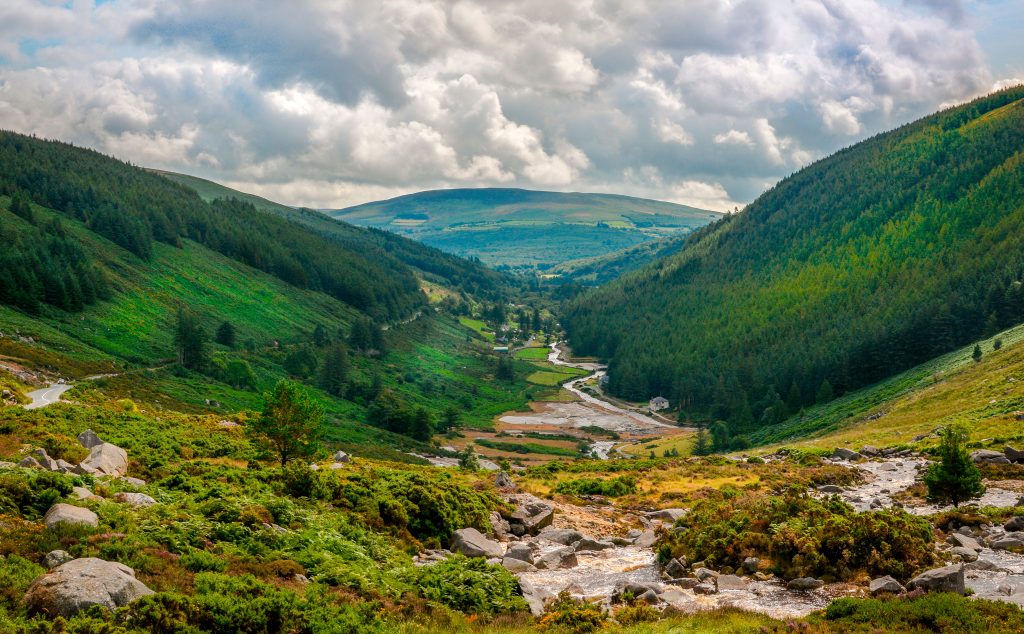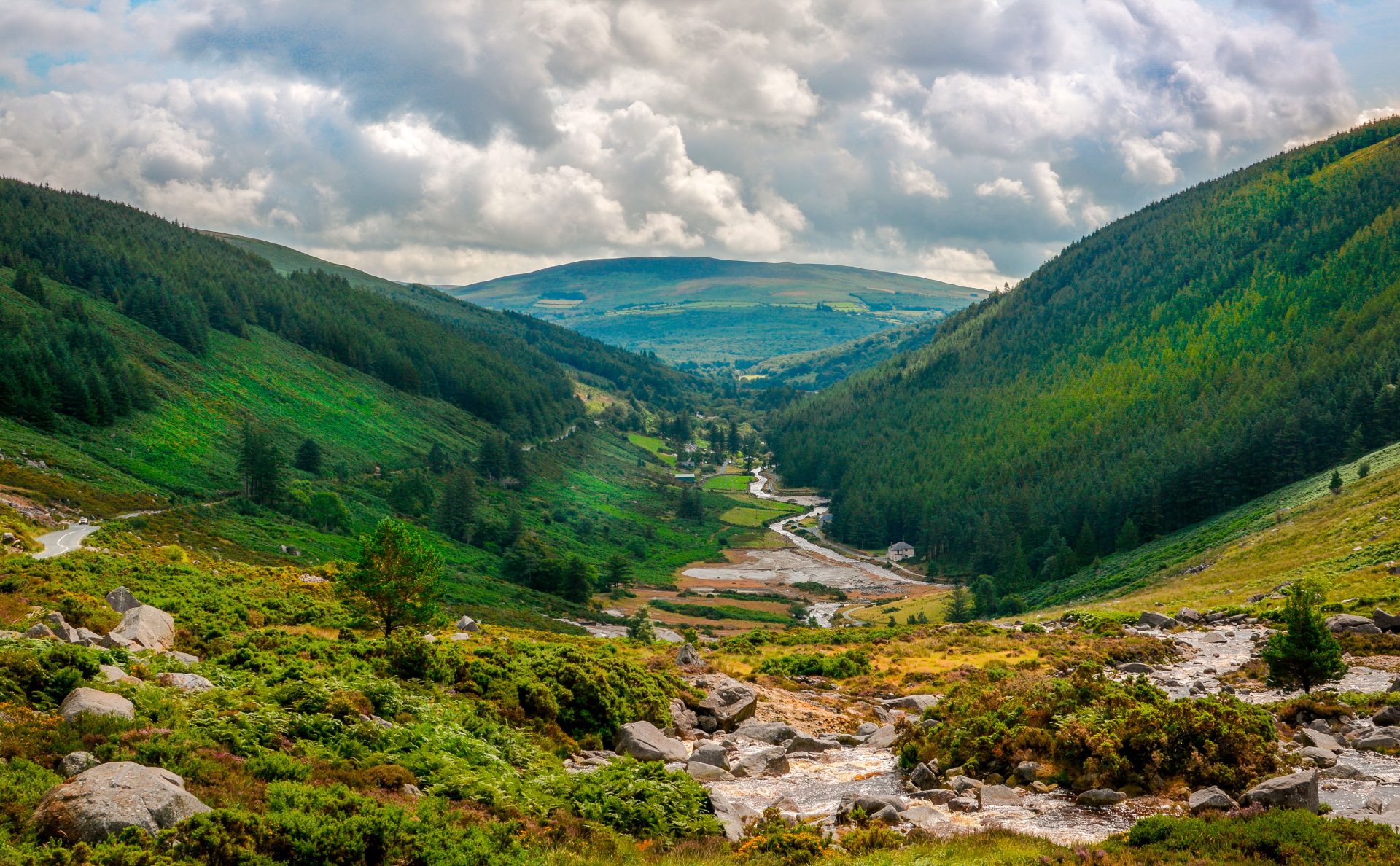Emigration is not a new concept to the people of Ireland.
Earlier instances that can be quantified go back to the “Flight of Earls”, Hugh O’Neill, Earl of Tyrone, and Rory O’Donnell, first Earl of Tyrconnell, who fell out with the crown in the early 1700’s, and got out of dodge while they still could.
There would be very few Irish who were not familiar with the circumstances and consequences of “An Gorta mor” the great famine of 1845.
Eighty per cent (80%) of those who left Ireland during this terrible time went to America, the poorest of the emaciated and starving victims could only afford the ferry passage to Liverpool in the UK.

Most Irish families were large, some consisting fourteen or more people, and the countries they sought refuge from could be the devil between them and the deep blue sea.
Poverty forced emigrants to shelter their families wherever they could, often in tiny, cramped spaces, shared with two or more other families, in a building intended for single family use. Lack of proper sewage and running water made keeping self and surroundings clean practically impossible, leading to sickness and disease. Existing in these cheek-by-jowl conditions earned the label of “Dirty Irish’, their large Catholic families looked down on as animal litters, and treated in kind.
Suspicion around taking jobs from the locals produced discrimination and mistrust on a national level. Even the educated Irish could only secure heavy labouring work or in domestic service, paying minimal, or below, wages. Take it or leave it, Paddy!
Many a boarding or lodging house put signs in their windows stating “No blacks, no dogs, no Irish”.
In the late 1940’s and 1950’s, dire economic conditions forced the next wave of migration to the UK, where work was so thin on the ground, or unavailable to the Irish, some men felt pressured into joining the British army, taking “The Queen’s shilling” to support their families. Given the history between both countries, and having blood relatives back home, this could be very marginalising for those trying to keep the wolf from the door, and their kids fed and sheltered.
Lack of political autonomy and religious or sectarian conflicts were the main concerns of those emigrating in the 1960’s and 1970’s, particularly Northern Irish.
The flat-lined economy of the 1980’s saw young people leave in droves, mainly to America, Canada, and Europe.
Eire go Brea enjoyed huge economic growth, AKA “The Celtic tiger”, from the late 1990’s to 2008, when the bubble burst with the collapse of the Irish banking system. People leaving Ireland more than tripled between 2008 and 2012, impacting families, friends and businesses.
The central statistics office (CSO) estimates that almost 81,000 left Ireland in the twelve months between April 2014 and April 2015, exceeding even the highest rates of emigration in the 1950’s and 1980’s. Overall, since 1700, it is estimated between nine and ten million born in Ireland have emigrated——more than the population itself.
Perth, WA, where I now call home, is considered the most isolated place on the planet. It’s not Paris, or Poland, or Pennsylvania, USA that would take six hours thirty one minutes to get to Dublin airport from, as opposed to twenty one hours fifty five minutes (that’s 22 hours in ANY language!) from Perth.
The hot, dusty, dry conditions of living on a desert’s edge can make the green, green grass of home seem even further away when homesickness strikes. Even in a crowded room, loneliness can side-swipe and shock us with its depth.
Hearing a song that reminds of a time or place, a lad the image of someone from primary school, a whiff of your Ma’s perfume, or a Tayto sandwich with Kerrygold butter can trigger a desperation to be among your own, even for ten minutes.
Birthdays, anniversaries, holidays and holy days, the matchings, hatchings and despatchings only the Irish celebrate and honour in our own unique way, can break the heart of a soul trying their best to integrate with their new life, and make some sort of peace with living in tomorrow.
Whether we came for better economic opportunities, or adventure and curiosity for what lies in the field beyond, everyone that has grown up in Ireland still thinks of our little Island as “HOME” in the head, but more so, in the heart.
Our sayings, customs, values and mannerisms sometimes draw condescension, or a smile, but a “LAAAV your accent!” Can bridge what gets lost in translation.
It’s not just Barrys tea, chocolate Kimberley, or tights from Penneys that define what we miss from home. It is the sometimes irreverent humour, our patriotism, fairness in sport——win, lose or draw, welcome for strangers, sing-song at the drop of a hat, and most conversations starting with a description of the weather. Swearing to go straight home from the GAA match on Sunday afternoon, and yourself and the pals being last to leave the pub for a stop at the chipper on the way home…..
Ireland has bred saints, sinners, scholars, singers, musicians, poets, athletes and authors, most of whom have left their beloved Island, sometimes grudgingly, to expand their wings in the wider world. When playwrite, poet, and character extraordinaire Brendan Behan returned from a three month stint in Canada, and was asked what he thought of the place, he replied “It’ll be lovely when it’s finished!”
Before leaving for America in the 30’s and 40’s, Irish people had their “Wake” the night before they sailed, giving family and friends the opportunity to say goodbye. Surviving the crossing was not guaranteed, any more than procuring work to keep body and soul together, with returning home again being completely out of the question.
Modern technology allows us to stay connected to loved ones any time of day or night, whether on shift-work, or living in remote areas, especially handy when the Mammy keeps forgetting what time it is here……
The grief of leaving “Home” behind, even temporarily, is a reaction to loss of the familiar. Some things that may not have particularly resonated when we lived there can magnify homesickness, and reinforce the idea that we will never fully settle.
There will always be the dread of “that” phone call on the back-burner; Illness or death in the family, how quickly can I get there? There’s the possibility of accident or injury here in Australia, outstaying the visa, unplanned pregnancy, or the prolonged H O M E S I C K N E S S, affecting every aspect of life.
Being in the “system”, paying a mortgage or rent, childcare fees, and living expenses in general can make that holiday back, or return home, a pipe dream. What if your partner settles, but you want to go home? Or vice-versa.
Grieving any loss is unique to everybody, no two people will feel exactly the same way. Some of the physical symptoms of grief reactions are;
- A “hollow” feeling in the tummy area
- Tightness or heaviness in the chest or throat
- Oversensitivity to noise
- Difficulty breathing
- Fatigue—feeling tired and weak
- Lethargy—lack of energy
- A dry mouth
- Increase or decrease in appetite
- Insomnia, or fear of sleeping
- Aches and pains
Numbness or anger can also be present with grief.
If you are struggling with grief and loss related issues, reach out to those around you, talking to someone can lessen the burden of trying to carry grief 24/7.
People care about you, especially those from your community, the fighting Irish tend to fight hardest for each other, and you may be surprised by the reactions, or how the emigration journey has impacted some of those you think have “got it all together”, so put your hand up if you need help!
IF YOU ARE IN CRISIS OR FEELING UNSAFE PLEASE CALL 000
LIFELINE: 13 11 14
BEYOND BLUE: 1300 224 636
HONORARY CONSULATE OF IRELAND, WESTERN AUSTRALIA; 165/580 HAY STREET, PERTH, WA6000. TELEPHONE; (08) 65575802 Email: info@consulateofirelandwa.com.au
CLADDAGH ASSOCIATION INC., SUPPORTING IRISH PEOPLE LIVING IN PERTH, 13/15 BONNER DRIVE, MALAGA, WA 6090 TELEPHONE; (08) 9249 9213 Email; admin@claddagh.org.au CRISIS NUMBER; +61 403972265
facebook.com/claddaghwa

